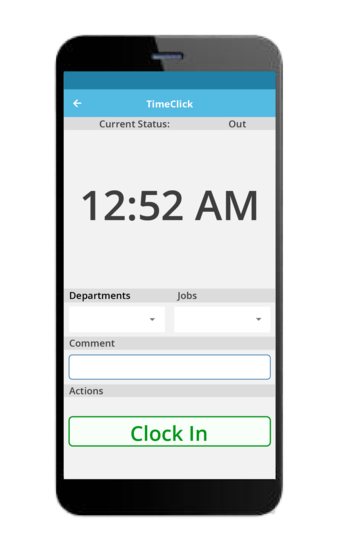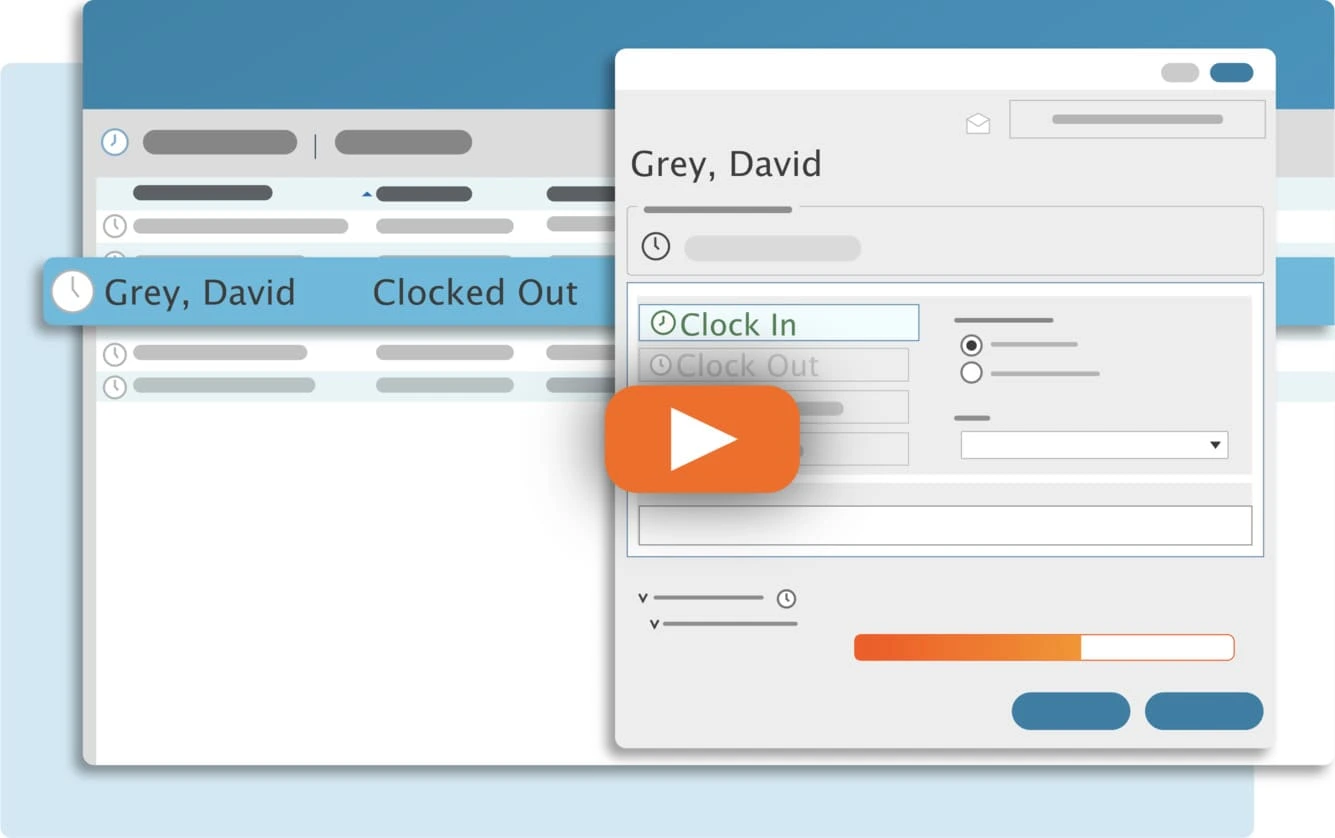U.S. employees are protected by a wide range of federal and state labor laws in 2025—covering everything from wages and workplace safety to leave, discrimination, and access to records. Whether you’re a small business owner or an employee, understanding these workplace rights is essential for staying compliant and protected.
This guide breaks down the most important workplace rights in plain language, including fair pay, time off, workplace safety, anti-discrimination protections, union rights, and more. We’ll also explain where state laws can offer stronger protections than federal law.
The information in this 2025 guide reflects the latest updates in employment law. It applies to nearly all U.S. workplaces—private or public, full-time or part-time, seasonal or permanent. Knowing what’s required (and what’s protected) helps everyone create a fair, safe, and respectful workplace.
Table of Contents
- Summary of Employee Rights in 2025
- Wage and Hour Rights
- Anti-Discrimination Rights
- Family and Medical Leave Rights
- Workplace Health and Safety Rights
- Right to Organize (Union Rights)
- Retaliation and Whistleblower Protections
- Access to Personnel Records
- More State-Specific Employee Rights
- Frequently Asked Questions
- Conclusion
Summary of Employee Rights in 2025
Before we explore each workplace right in detail, here's a high-level snapshot of the core protections employees have under U.S. labor law in 2025. This table offers a quick reference to help you see where federal law sets the standard—and where state laws often go further. Whether you're looking to stay compliant or better understand your rights, the sections that follow will break each area down more fully.
| Right | Federal Law | Stronger State Laws? |
|---|---|---|
| Minimum Wage | $7.25/hr (FLSA) | Yes — over 30 states have higher rates |
| Overtime Pay | Time-and-a-half after 40 hrs/week | Yes — some states add daily OT or double pay |
| Meal & Rest Breaks | Not required, but must be paid if given | Yes — 21 states require meal breaks |
| Family & Medical Leave | Unpaid leave (FMLA) | Yes — 13+ states offer paid leave |
| Workplace Safety | OSHA covers most employees | Yes — some states run their own safety programs |
| Anti-Discrimination | Protected categories under Title VII, ADA, ADEA | Yes — states often expand coverage |
| Union Rights | NLRA protects private-sector organizing | Yes — varies for public employees by state |
| Retaliation Protection | Most federal labor laws include it | Yes — some states add industry-specific coverage |
| Personnel File Access | No federal right | Yes — ~20 states allow access |
Wage and Hour Rights

Understanding how pay and hours are regulated is a critical part of workplace compliance. At the federal level, the Fair Labor Standards Act (FLSA) sets the foundation. As of 2025, the federal minimum wage remains $7.25 per hour for most workers and $2.13 per hour for tipped employees, with employers required to make up the difference if tips don’t reach minimum wage. However, many states have gone beyond this baseline. California, for example, has set its minimum at $16.50, and Washington leads slightly higher at $16.66. In states without a set minimum wage, the federal rate applies by default.
Overtime protections are also a major part of the FLSA. Non-exempt employees must be paid time-and-a-half for any hours worked over 40 in a workweek. Some states, however, have expanded on this rule. In California and Alaska, overtime kicks in after eight hours in a single day. California takes it a step further—requiring double pay after 12 hours in a day or for working seven consecutive days. A few states have also increased the salary threshold for exempt employees, making more salaried workers eligible for overtime.
When it comes to breaks, the FLSA is silent on whether employers must provide them—but if short breaks (typically under 20 minutes) are given, they must be paid. Once again, state laws have stepped up to fill the gap. Currently, 21 states require employers to provide meal breaks, and 7 of them also require paid rest breaks. California, for instance, mandates a 30-minute meal break after 5 hours worked, plus a paid 10-minute rest break for every 4 hours on the clock.
There are also federal protections for nursing employees under the PUMP Act. This law requires that employers provide reasonable break time and a private, non-bathroom space for pumping breast milk during the first year after childbirth. These rights apply nationwide, with only limited exemptions for small businesses facing undue hardship.
TIMECLICK TIP
State labor departments often update wage and break rules. Check your state’s current laws to make sure you’re in compliance.
Anti-Discrimination Rights

Employees in the U.S. are protected from workplace discrimination under several key federal laws. The most well-known is Title VII of the Civil Rights Act of 1964, which prohibits discrimination based on race, color, religion, sex, or national origin. It applies to employers with 15 or more employees and covers everything from hiring and pay to promotions and working conditions. Courts have also clarified that sex discrimination includes pregnancy, sexual orientation, and gender identity.
Several other federal laws help strengthen these protections. The Age Discrimination in Employment Act (ADEA) protects workers aged 40 and over. The Americans with Disabilities Act (ADA) requires reasonable workplace accommodations for employees with disabilities, unless it would cause undue hardship for the employer. The Genetic Information Nondiscrimination Act (GINA) prevents employers from using genetic information in hiring or employment decisions.
Many states have taken these protections even further. Some have expanded coverage to smaller employers or added categories like marital status, military service, weight, height, political activity, credit history, and lawful off-duty conduct. States like Michigan, California, and New York are known for having some of the strongest anti-discrimination laws in the country.
Retaliation is also illegal. Employers cannot punish you for reporting discrimination, participating in an investigation, or standing up for yourself or coworkers. If you believe your rights have been violated, you can file a complaint with the U.S. Equal Employment Opportunity Commission (EEOC) or your state’s fair employment agency.
TIMECLICK TIP
If you believe you’ve been discriminated against, act quickly. Federal claims usually must be filed with the EEOC within 180 days, although some states allow more time.
Family and Medical Leave Rights

When major life events happen—whether it’s a health crisis, the arrival of a new child, or the care of a loved one—employees may be entitled to take time off under the Family and Medical Leave Act (FMLA). This federal law provides eligible workers with up to 12 weeks of unpaid, job-protected leave in a 12-month period for certain family or medical reasons. Qualifying circumstances include:
- Recovering from a serious health condition
- Caring for a close family member with one
- Welcoming a newborn or adopted child
- Addressing specific military family needs
To be eligible, an employee must have worked for their employer for at least 12 months and clocked at least 1,250 hours in the past year. The FMLA applies to private employers with 50 or more employees, as well as to all public agencies and schools.
While the leave is unpaid, the law requires employers to maintain the employee’s health insurance during their time away—and to return them to the same or a similar position once the leave ends. But some states take it a step further. California, for example, extends similar leave rights to employees of businesses with just 5 or more workers. And several states—including Washington, Massachusetts, and New York—offer paid family and medical leave funded through payroll contributions.
In fact, as of 2025, 13 states and Washington, D.C. have official Paid Family and Medical Leave (PFML) programs. These programs give eligible employees partial wage replacement while they’re bonding with a new child, recovering from a serious illness, or caring for an ailing family member. Each state sets its own rules for how much leave is available and who qualifies.
Unionized workers and public employees may also have added protections through collective bargaining agreements or specific government leave policies. On top of that, some private employers offer paid parental or caregiving leave even if they’re not required to under state or federal law.
TIMECLICK TIP
If you're planning to take FMLA leave, give your employer at least 30 days’ notice when possible. It helps ensure a smooth process and protects your job and benefits.
Workplace Health and Safety Rights

A safe and healthy work environment isn’t a luxury—it’s a legal right. Under the Occupational Safety and Health Act (OSH Act), employers are required to provide workplaces that are free from known hazards that could cause serious harm or injury. These standards are enforced by the Occupational Safety and Health Administration (OSHA), which oversees most private-sector workplaces across the U.S.
OSHA doesn't just set the rules—it gives workers specific rights, too. Employees are entitled to receive safety training in a language they understand, to review records of workplace injuries and illnesses, and to request an OSHA inspection if they believe unsafe conditions exist. In certain cases, workers also have the right to refuse work they reasonably believe would put them in serious danger.
Not all safety enforcement comes from the federal level. Some states run their own OSHA-approved safety programs, known as State Plans. These must meet or exceed the effectiveness of federal OSHA standards. As of 2025, 22 states and Puerto Rico have full State Plans covering both private and public employees, while 7 additional states and the U.S. Virgin Islands have plans that apply to public employees only.
OSHA protections apply broadly—including to full-time, part-time, temporary, seasonal, and even undocumented workers. When violations are found, OSHA can issue citations and fines, and employers are legally required to correct the hazards.
TIMECLICK TIP
If you believe your workplace is unsafe, you can file a confidential complaint with OSHA online, by phone, or by mail. Your employer is prohibited from retaliating against you for speaking up.
Right to Organize (Union Rights)

Workers have the right to speak up about wages, hours, and working conditions—and to do it together. The National Labor Relations Act (NLRA) protects most private-sector employees who join forces to improve their workplace, whether they belong to a union or not. This includes the right to form, join, or assist a union, as well as the right to decline union involvement altogether.
Under the NLRA, employers are prohibited from firing, threatening, or otherwise punishing employees for union activity or organizing efforts. In workplaces that are already unionized, the law requires employers to bargain in good faith with the union that represents their employees. These collective bargaining agreements often provide stronger job protections—such as requiring “just cause” for termination—compared to at-will employment standards.
Public-sector employees follow a different set of rules. They're not covered by the NLRA, but many states have their own laws governing union rights for government workers. In states like California and New York, public workers enjoy strong union protections. In others, such as North Carolina and South Carolina, collective bargaining is not allowed for public employees at all.
Another factor that affects union membership is whether a state has a Right-to-Work law. As of 2025, 26 states have laws that prevent union contracts from requiring employees to join or financially support a union as a condition of employment. On the public-sector side, the Supreme Court’s 2018 decision in Janus v. AFSCME made it illegal to require public employees to pay union fees, even in unionized workplaces.
In short, workers have the legal right to organize—or not. Employers can’t interfere, and employees are protected from retaliation for exercising these rights.
TIMECLICK TIP
Even if your workplace isn’t unionized, you still have the right to discuss wages, schedules, and working conditions with your coworkers. That’s called “protected concerted activity”—and it’s covered by federal law.
Simplify Time Tracking with TimeClick!
Download our free trial—simple, secure, offline tracking, no fluff.

Retaliation and Whistleblower Protections

Speaking up at work shouldn't come at a cost—and legally, it can't. Employees are protected from retaliation when they assert their rights or report workplace violations. That means an employer cannot legally fire, demote, harass, or otherwise punish someone for doing the right thing—like reporting safety concerns, filing a wage complaint, or participating in a discrimination investigation.
These protections are built into most major federal workplace laws. For example, the FLSA shields workers who raise wage or overtime concerns. OSHA covers those who report unsafe working conditions. And laws like Title VII and the ADA prohibit retaliation tied to discrimination complaints or requests for accommodation.
The federal government also goes further in key industries. The Department of Labor’s Whistleblower Protection Program enforces more than 20 laws that protect workers who report wrongdoing in fields like transportation, healthcare, finance, environmental safety, and consumer protection. If you uncover serious misconduct or illegal activity, these laws can help protect you from retaliation.
At the state level, protections vary—but many states have their own whistleblower laws that offer similar or broader coverage. Some apply to workers who report any legal violation; others focus on specific industries or types of misconduct, like healthcare fraud or public corruption. Even in states without formal whistleblower laws, firing someone for refusing to break the law or for reporting illegal acts often violates public policy—and can be grounds for a wrongful termination claim.
TIMECLICK TIP
If you've reported a concern and suspect retaliation, act quickly. Some federal whistleblower protections have strict deadlines—as short as 30 days—to file a complaint.
Access to Personnel Records

Transparency matters—especially when it comes to the records your employer keeps about you. While there’s no broad federal law giving private-sector employees the right to access their personnel files, some rights may still apply depending on your workplace or location.
For example, unionized employees might have access to certain records through their collective bargaining agreements. Federal contractors are also required to share specific pay-related information under equal opportunity laws. But for most workers, whether you can inspect your personnel file depends on state law.
As of 2025, around 18 to 20 states give private-sector employees the right to view or copy their personnel records. States like California, Illinois, Massachusetts, and Minnesota have clear rules outlining how and when employees can make these requests. Usually, the request must be in writing, and you may be limited to viewing your file once or twice a year.
The types of documents typically accessible include:
- Performance evaluations
- Disciplinary notices
- Compensation records
- Documentation related to job qualifications
However, items like confidential references or background check reports are usually excluded.
In contrast, some states—including Alabama, Florida, New York, Ohio, Texas, and Wyoming—do not require private employers to grant access to personnel records. In these cases, access is left to the employer’s internal policies, if any.
If your state does offer access rights, you may also be entitled to submit a written response or correction if you disagree with something in your file. In some cases, employers who deny access when it’s legally required can face penalties.
TIMECLICK TIP
If your state allows it, it’s a good idea to check your personnel file before a performance review, promotion discussion, or exit from the company.
More State-Specific Employee Rights
Beyond federal laws, many states and cities have added their own rules to strengthen workplace protections. These local laws often go further—offering added benefits, closing gaps in federal coverage, or tailoring protections to regional needs. What applies to you can vary significantly depending on where you work.
One of the most common examples is paid sick leave. As of 2025, 18 states and Washington, D.C. require employers to offer it. States like California, Arizona, Connecticut, and New Jersey guarantee a set number of paid hours that workers can use for their own illness or to care for a sick family member.
To promote pay equity, roughly 21 states and several major cities have passed salary history bans. These laws prohibit employers from asking about a job applicant’s past wages—helping to prevent previous underpayment from following someone to their next job.
Fair hiring practices are another focus. More than 35 states and many cities have adopted "ban-the-box" laws, which prevent employers from asking about criminal history on initial job applications. Places like California, Illinois, and New York have taken the lead in this area.
Some states are also promoting greater transparency. In California, Colorado, New York, and Washington, employers must list salary ranges in job postings or disclose them upon request. These pay transparency laws help applicants negotiate with more confidence and fairness.
Off the clock, states vary in how much they protect personal freedom. Several, including Colorado, New Jersey, and New York, have laws that prevent employers from taking action against workers for lawful off-duty conduct—like using cannabis where legal or participating in political activities.
There are also plenty of unique protections that only exist in certain areas. For example, Illinois and New York require a “day of rest” for certain workers. California enforces strict final paycheck rules. And cities like Seattle and New York City have passed “fair scheduling” laws for retail and food service jobs—ensuring workers receive predictable shifts and advance notice.
Frequently Asked Questions
Below are answers to some of the most common questions employees and employers have about workplace rights in the U.S. Keep in mind that while federal law sets the baseline, your state may provide additional protections.
Do all employees qualify for overtime pay?
Not always. Only non-exempt employees are guaranteed overtime pay under the Fair Labor Standards Act (FLSA). Exempt employees—typically salaried workers who meet specific job duties and salary thresholds—are not entitled to it. However, some states set stricter criteria that expand overtime eligibility to more workers.
Can my employer fire me for any reason?
In most states, yes. Employment is generally considered "at-will," which means an employer can let someone go for any reason—or no reason at all—as long as it doesn’t violate the law. Unlawful reasons include discrimination, retaliation, or whistleblowing. Montana is the one exception: after a probationary period, employers must show just cause for termination.
Am I entitled to paid sick leave?
It depends on where you work. There’s no federal law requiring paid sick leave for private-sector employees, but many states and cities have passed their own laws. Check with your state or local labor agency to find out what applies in your area.
What should I do if I believe my workplace is unsafe?
You have the right to report unsafe conditions to OSHA or your state’s workplace safety agency. You can also request an inspection. Your employer is legally prohibited from retaliating against you for raising a safety concern.
Can my employer ask about my salary history when I apply?
It depends on the state. About 21 states and several major cities have laws that ban employers from asking about your previous salary. These rules are designed to prevent wage discrimination. If you're unsure, check the laws in your area before answering.
Conclusion
Workplace rights in the U.S. are built on a layered foundation of federal, state, and sometimes even local laws. At the federal level, employees are guaranteed baseline protections—like fair wages, a safe work environment, and freedom from discrimination. But that’s often just the starting point.
Many states and cities have stepped in to provide additional rights that go further. These can include paid sick leave, stronger anti-discrimination rules, better privacy protections, and higher minimum wages. Because of this patchwork system, what applies in one state may look very different in another.
Whether you're managing a team or part of one, understanding these laws is essential. Knowing both the federal standards and your specific state’s requirements helps prevent problems, protect rights, and promote fairness. When in doubt, your best next step is to check with your state’s labor department—or speak with an employment law expert if something feels off.
The bottom line: a safe, fair, and respectful workplace starts with knowing the rules. This guide is a starting point to help you get there.
Need help staying compliant? TimeClick helps thousands of businesses simplify time tracking, reduce payroll errors, and stay compliant with wage and labor laws.
Start your FREE TimeClick Trial Today.

